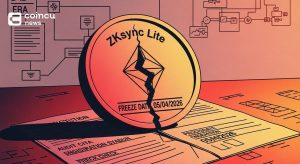Exchange Traded Funds (ETFs) have gained significant popularity among investors in recent years. But what exactly are they and how do they work? Let’s dive into the world of ETFs to understand their structure, benefits, and potential risks.
An Exchange Traded Fund (ETF) is an investment vehicle that combines the features of mutual funds and stocks. It is designed to provide investors with exposure to a diversified portfolio of assets, which can include stocks, bonds, commodities, and even cryptocurrencies.
Unlike mutual funds, which can only be bought or sold at the end of the trading day at their net asset value (NAV), ETFs are listed on exchanges and can be traded throughout the trading day at market prices. This means that investors have the flexibility to buy or sell ETF shares at any time during market hours, just like they would with individual stocks.
ETFs are created and managed by financial institutions, such as asset management companies. These institutions pool together a basket of securities that represent a specific market index or asset class and issue ETF shares to investors. The number of ETF shares in circulation can vary depending on investor demand.
One of the primary advantages of ETFs is their ability to provide diversification. By investing in an ETF, investors gain exposure to a basket of securities, which helps spread the risk associated with individual stocks or bonds. For example, an investor can purchase an ETF that tracks a broad market index like the S&P 500, which consists of 500 large-cap U.S. stocks. This provides instant diversification across various sectors and industries.
Another advantage of ETFs is the flexibility they offer. While some ETFs track broad market indices, there are also specialized ETFs that focus on specific sectors or themes. For instance, there are ETFs that invest in renewable energy companies, technology stocks, or emerging markets. This allows investors to align their investment strategies with specific market trends or areas of interest.
ETFs can be classified into two main categories: passively managed and actively managed. Passively managed ETFs aim to replicate the performance of a specific index, such as the Dow Jones Industrial Average or the NASDAQ Composite. These ETFs typically have lower expense ratios compared to actively managed ETFs because they do not require extensive research and portfolio management.
On the other hand, actively managed ETFs are overseen by a portfolio manager or a team of investment professionals. These managers make active investment decisions with the goal of outperforming the benchmark index. Actively managed ETFs may have higher expense ratios due to the additional research and management involved.
Another important aspect to consider when investing in ETFs is their cost structure. ETFs generally have lower expense ratios compared to mutual funds. The expense ratio represents the annual fee charged by the fund manager to cover administrative and operational costs. It is deducted from the fund’s assets and impacts the overall return for investors.
ETFs also offer certain tax advantages. Unlike mutual funds, which may generate capital gains taxes throughout the investment period, ETFs typically only generate capital gains taxes when the ETF shares are sold. This tax efficiency can be beneficial for long-term investors.
In addition to these benefits, ETFs also provide investors with the opportunity to engage in short selling. Short selling involves selling shares of an ETF that the investor does not currently own, with the expectation that the price will decline in the future. If the price does fall, the investor can buy back the shares at a lower price, thereby profiting from the difference.
It is worth noting that while ETFs offer several advantages, they also come with potential risks. The value of ETF shares can fluctuate based on market conditions, and investors may incur losses if they sell their shares at a lower price than what they paid. Additionally, some specialized ETFs may be subject to higher volatility and liquidity risks due to the nature of the underlying assets they hold.
In conclusion, Exchange Traded Funds (ETFs) are investment vehicles that provide investors with exposure to a diversified portfolio of assets. They offer flexibility, diversification, and cost advantages compared to other investment options. However, it is important for investors to carefully consider their investment objectives and risk tolerance before investing in ETFs.














